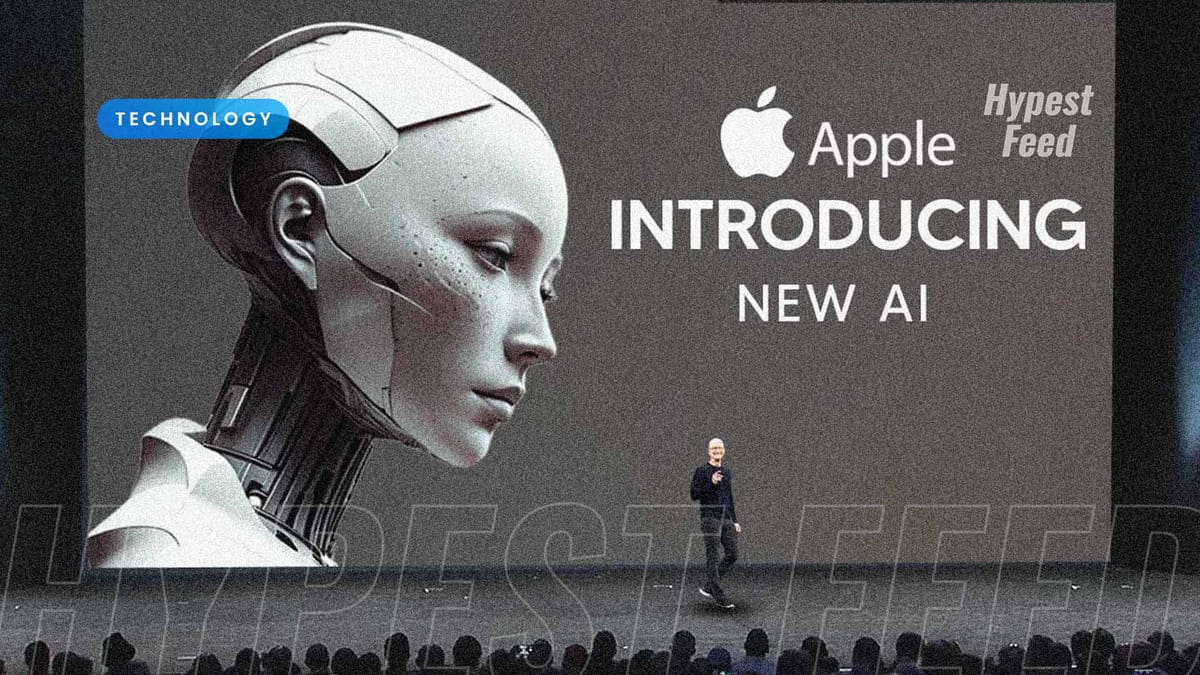In recent times, rumors swirled around Apple's development of an in-house chatbot dubbed Apple GPT, inspired by OpenAI's ChatGPT. While various tech giants swiftly rolled out generative AI products, Apple remained relatively tight-lipped, offering only bold but vague assurances from CEO Tim Cook about groundbreaking advancements in generative AI anticipated later in the year. However, recent reports suggest that Apple may be partnering with Google to license the Gemini AI models for integration into iPhones.
According to Bloomberg, discussions between Apple and Google are underway to potentially bring Gemini AI models to iPhones, mirroring the strategy adopted by Samsung for its Galaxy S24 series, which can run Google's Gemini Nano model on-device while utilizing more robust versions on the cloud. While the specifics of the arrangement are yet to be finalized, talks with OpenAI are also reportedly in progress. Notably, OpenAI's foundational technology, including the GPT-4 model and Dall-E, is already accessible through various Microsoft products and standalone apps like ChatGPT Plus.
This development marks a significant step in Apple's AI endeavors, potentially enhancing its competitiveness in the realm of generative AI. However, it also raises questions about the implications of such collaborations and the extent to which they may shape the future landscape of AI technology.
In December 2023, Apple discreetly introduced a series of model libraries and frameworks under the MLX group aimed at harnessing generative AI capabilities on its proprietary silicon, echoing Qualcomm's efforts with its Snapdragon X Elite platform. Concurrently, Apple's research division unveiled a paper detailing Keyframer, a generative AI tool rooted in OpenAI's GPT-4 model but enriched with vector graphics for processing still images.
Additionally, Apple's experts published a research paper outlining an AI tool facilitating image editing through simple verbal instructions, reminiscent of Qualcomm's voice-assisted media editing toolkit embedded in its latest Snapdragon chips. Reports from Bloomberg shed light on Apple's efforts to bolster its dedicated team exploring generative AI functionalities, with the ambitious goal of making these tools accessible to developers by 2024.
Speculation suggests that Apple's inaugural batch of generative AI functionalities may debut with iOS 18, anticipated for a June launch. However, unlike cloud-connected generative AI facilities like ChatGPT and Gemini, these features are purportedly geared towards native on-device systems. Meanwhile, revelations from The Information in September hinted at Apple's development of "foundation models" to enhance Siri, akin to Gemini's role in advancing Google Assistant.
Gemini, which offers an array of capabilities when operating locally or connected to the internet, has seen integration into various devices, including the Google Pixel 8 Pro and Samsung's Galaxy S24 series phones. The Gemini Nano model facilitates Smart Reply in the Gboard keyboard app, offline translations, and conversational interactions akin to Google Assistant or ChatGPT.
While Samsung collaborated closely with Google to integrate Gemini Nano into its flagship phones, MediaTek recently announced optimization for Gemini in its mid-range Dimensity 8300 silicon, alongside the flagship Dimensity 9300. Similar integration into Apple's ecosystem may follow, although the specifics remain uncertain pending potential on-device licensing deals or alternative approaches.
The implications of a Gemini licensing deal for Apple prompt questions about potential shifts in user interaction dynamics and the evolution of Siri. However, complexities arise regarding how Gemini might coexist with Siri and Google Assistant, similar to the coexistence of Gemini and Google Assistant on Android devices.
Given Apple's penchant for tight integration across its ecosystem, reconciling the roles of Gemini, Google Assistant, and Siri may pose challenges. While exclusive integrations between Gemini and Apple ecosystem features seem plausible, data storage policies and system-level integration complexities may temper expectations for immediate synergy.
In a recent turn of events, Gemini, a prominent AI platform, found itself embroiled in controversy following remarks deemed derogatory towards India's Prime Minister Narendra Modi, sparking outrage across social media platforms. India's Union Minister Rajeev Chandrasekhar cautioned against dismissing the incident with a simple apology, emphasizing the importance of compliance with the law.
This incident reignited discussions surrounding AI regulation, prompting authorities to issue advisories to major AI players, stipulating the necessity of obtaining explicit approval before releasing tools like Gemini to the public. The regulatory spotlight on AI ethics and accountability underscores the growing imperative for responsible AI deployment in the global landscape.
For companies like Apple, known for their meticulous adherence to governmental regulations, the prospect of licensing Gemini for widespread use on hundreds of millions of devices poses considerable risks. Compounded by warnings from Google about the potential for errors inherent in AI systems like Gemini, there's heightened scrutiny on ensuring accuracy and ethical standards in AI-driven technologies.



Member discussion: